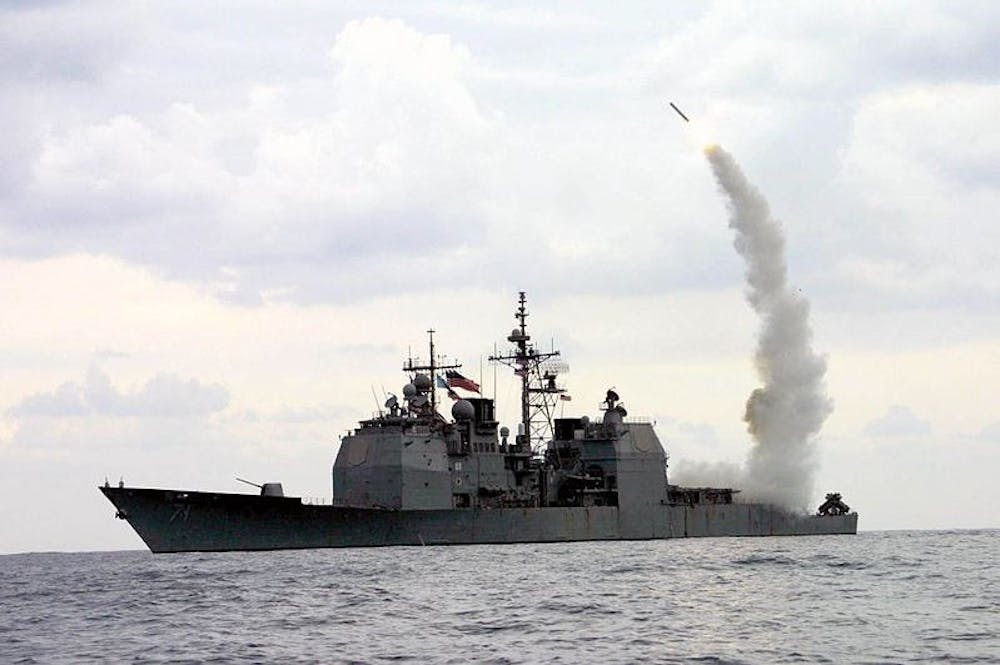Most college students today grew up in a country that was at perpetual war with phantom enemies that are swept under the umbrella term “terrorists.”
When 19 people attacked the nation on Sept. 11, 2001, many students were too young to fully comprehend the decades-long effect that would linger. They only saw fear and confusion in the eyes of their parents and teachers as the country scrambled to respond to the attack.
Within three years American troops were deployed around the Middle East, occupying Baghdad, Iraq and searching the mountains of Afghanistan for a war criminal. But despite the death of Osama bin Laden and Sudam Hussein, the wars never came to a clean end.
Nearly 15 years after the United States threw Hussein out of power, Iraq and its neighbor, Syria, are as unstable as ever. New militant groups filled a power vacuum, and as some fight each other, some try to fight the world.
Millennials cannot remember a time when the United States’ attention was not turned toward the Middle East. Though America’s part in what seems like a never-ending war simmered, there is always a gut-wrenching feeling that it is only a matter of time before the country will return to the foreign deserts and cities in full force.
Civil wars in Syria and intermittent terrorist attacks across Europe and the U.S. can be acknowledged and forgotten, but when these things only intensify they cannot be ignored for long.
In the aftermath of President Donald Trump’s decision to launch a missile attack against Syria in response to the country’s use of chemical weapons, Americans are wondering if their government just started walking down a path to war.
Missile strikes and special operation raids are not exactly uncommon in Syria and surrounding provinces, which is why it may be easy enough to say Trump’s decision is nothing more than a one-time response to a heinous act. But what if Syria’s dictator, Bashar al-Assad, continues to use chemical weapons to kill his enemies in mass numbers?
Years of small military operations, airstrikes and diplomatic condemnations clearly did not deter Assad from using more ruthless tactics in war. Whether that means the U.S. needs to increase its role in the war or drop its efforts entirely is a hard question to answer.
Creating a quagmire inside of a quagmire, probably no one except senior adviser Stephen Bannon knows if Trump’s missile-retaliation is a pre-text to war or a show of military strength to scare Assad. Whatever the case, Trump cannot be so quick to judge his predecessor’s foreign policy now that he is in the hot seat. Even the president of the most powerful country in the world cannot take unilateral military actions forever without virtually bringing the nation to its knees like during the Vietnam War.
As the world is on the edge of their seat to understand Trump’s foreign policy, the stability of East Asia is deteriorating at a steady, albeit slow, pace.
A North Korean official said the missile-strike in Syria is justification for the rogue nation to keep its nuclear arsenal, according to Fox News. The British Broadcasting Corporation reported the U.S. is sending several warships to the North Korean peninsula to the nation’s nuclear threats, which Trump said the U.S. can do alone.
Where is the wisdom in dividing the nation’s attention to opposite sides of the globe without calling on allies for aid?
Trump is probably just looking to scare his adversaries, but when bull-headed political leaders square off it’s not likely to lead anywhere good.



The Slate welcomes thoughtful discussion on all of our stories, but please keep comments civil and on-topic. Read our full guidelines here.